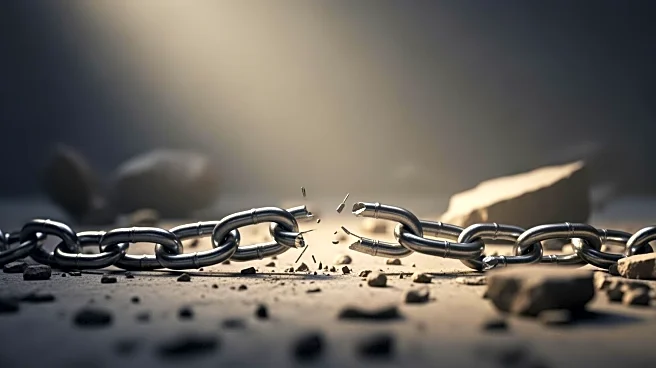What's Happening?
Hamas has announced that the return of Israeli hostages' remains will be delayed, citing that some are buried under rubble from destroyed tunnels and bombed buildings in Gaza. This statement comes amid
ongoing efforts to adhere to a ceasefire agreement with Israel. The destruction in Gaza has complicated the process of recovering and returning the remains, as the area has been heavily impacted by recent conflicts. The situation highlights the challenges faced in post-conflict recovery and the humanitarian issues arising from the hostilities.
Why It's Important?
The delay in returning hostages' remains underscores the humanitarian challenges in Gaza following the conflict. It highlights the difficulties in achieving reconciliation and peace in the region, as well as the impact on families awaiting closure. The situation may affect ongoing diplomatic efforts and negotiations between Hamas and Israel, potentially influencing the stability of the ceasefire. The humanitarian aspect also draws attention to the need for international support in rebuilding and recovery efforts in Gaza.
What's Next?
Efforts to recover and return the remains will continue, with potential involvement from international organizations to assist in the process. The situation may lead to further diplomatic discussions between Hamas and Israel to address the delays and ensure compliance with the ceasefire agreement. The international community may increase pressure on both parties to expedite the recovery process and address humanitarian needs in Gaza.
Beyond the Headlines
The situation raises ethical questions about the treatment of hostages and the responsibilities of militant groups in conflict zones. It also highlights the long-term impact of infrastructure destruction on civilian populations and the need for comprehensive rebuilding efforts. The potential for a Lebanese model, where a weak government coexists with a dominant guerrilla force, could influence future governance in Gaza.










